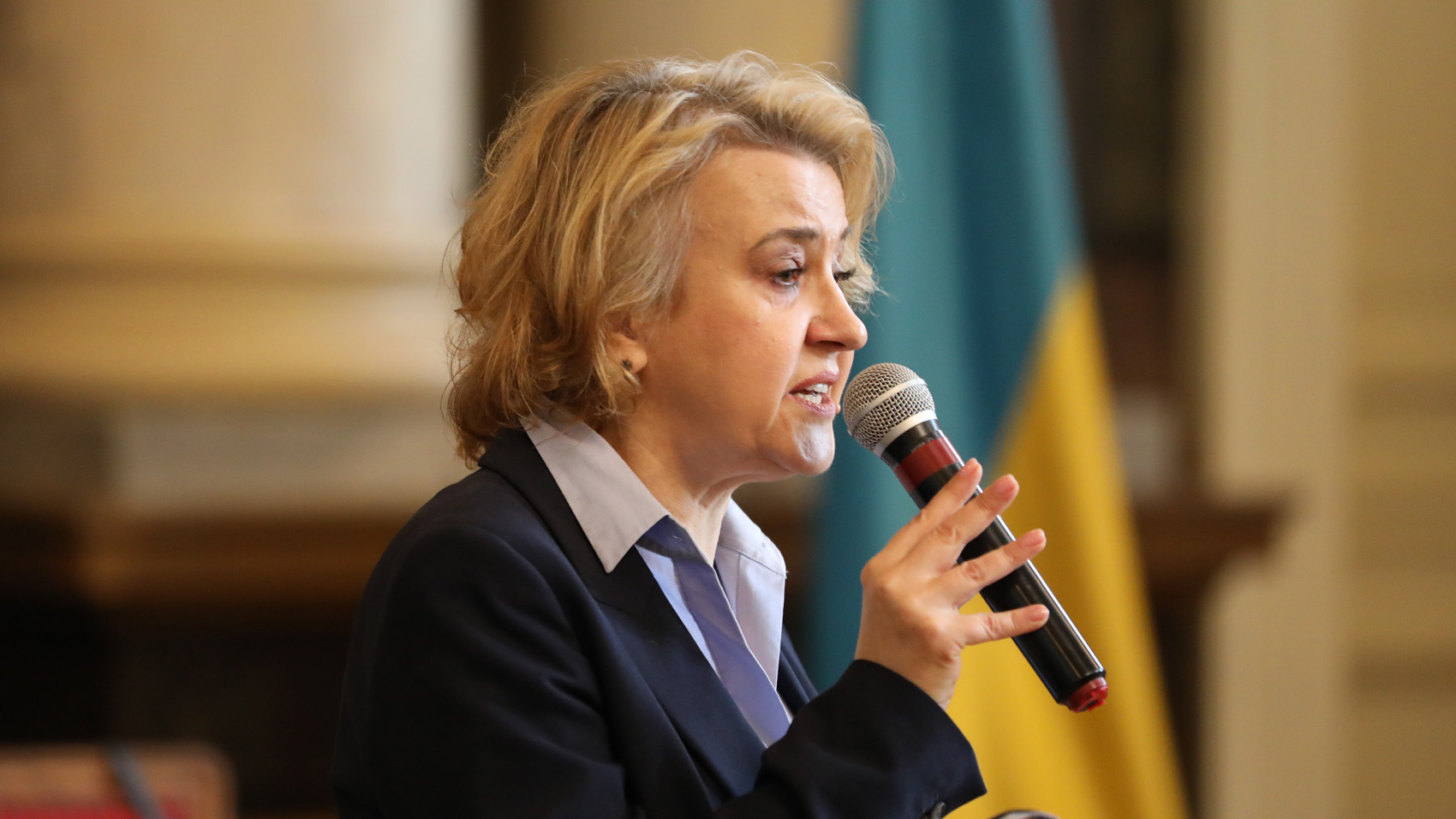A meeting on the topic «Ukraine’s longest journey: 21st century and the phenomenon of the «end of history» was held with Oksana Zabuzhko, a famous Ukrainian writer, intellectual, literary critic, philosopher, publicist, and public activist. The event took place at Lviv Polytechnic National University.
The event was organized by the International Institute of Education, Culture and Diaspora Relations (IECDR), Lviv Polytechnic.
Iryna Kliuchkovska, Director of IECDR, welcomed the guest, emphasizing:
– Anna Kisil, a graduate of Lviv Polytechnic University, former head of the World Federation of Ukrainian Women’s Organizations and vice-president of the Ukrainian World Congress, once dreamed of this meeting. Our guest is best represented by her books, journalism, poetry, and speeches. For me, Oksana Zabuzhko is Nestor the Chronicler of our time. If you want to know something about our era, how we live, where we are from, the persistence of our national liberation struggles, our Ukrainian saints – read the works of Oksana Zabuzhko. If we want to learn about ourselves in our epoch, let’s read the works of Oksana Zabuzhko, if we want to understand the processes and why it happens in this way, let’s read the works of Oksana Zabuzhko. If we want to look into the future, let’s talk to Oksana Zabuzhko, as her powerful intellect, encyclopedic knowledge together with intuition create an amazing synergy and open a window to our future.
Oksana Zabuzhko made her speech around the book «The Longest Journey». This book has been translated into eight languages so far.
Mz. Zabuzhko emphasized that «The Longest Journey» is an essay based on her observations as a witness of 30 years of history. The writer is convinced that it is necessary to begin talking about this war starting with 1989–1991, that is, from the end of the Cold War. From the time when the Western world believed and still partially believes that it won it.
